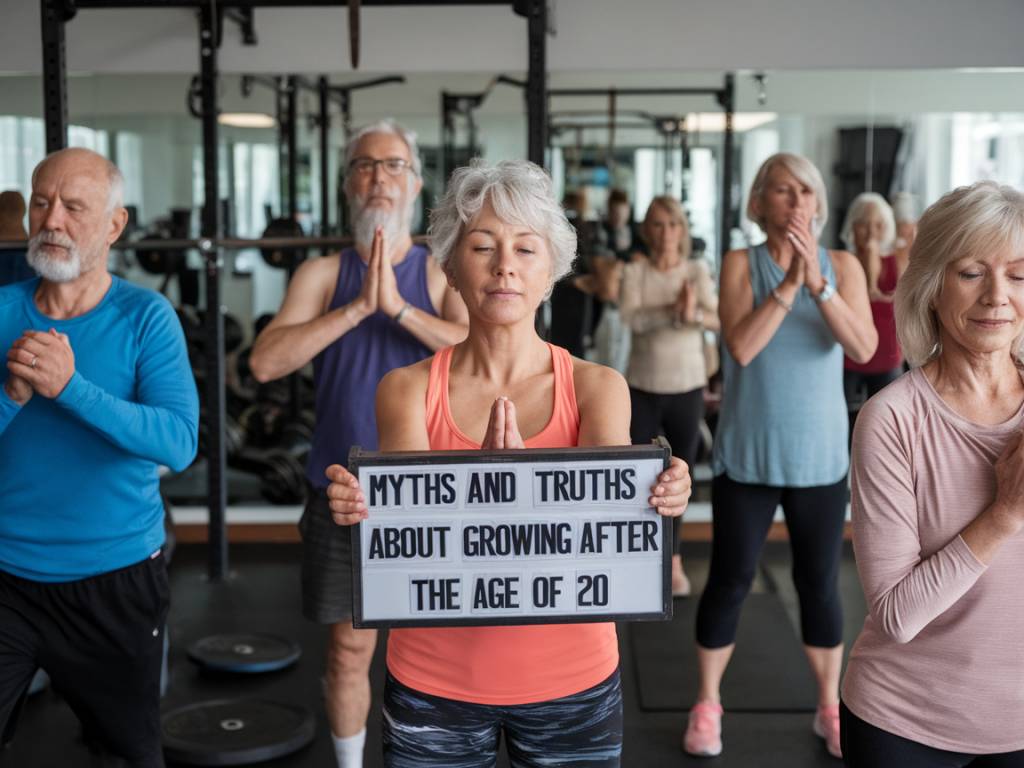What Are Growth Hormones and How Do They Work?
Growth hormones (GH), or human growth hormone (HGH), are naturally occurring proteins in your body produced by the pituitary gland. Their primary role is to stimulate growth and cell reproduction, especially during childhood and adolescence. But beyond that, they also play a role in regulating body composition, muscle mass, and metabolism.
When you hear the words “growth hormones,” you might think of injections or supplements claiming to unlock extra inches in height. But here’s the real question: can these hormones actually help you grow taller after a certain age? To understand this, let’s explore how growth hormones work and whether they deliver on their promises.
Does Boosting Growth Hormones Increase Height?
During childhood and teenage years, growth hormones are crucial for height development. However, they have their limits. The potential for growth largely depends on the state of your growth plates, the cartilage zones located at the ends of your long bones.
Once these growth plates fuse—usually around the age of 16-18 in females and 18-21 in males—no amount of growth hormone will increase your height. At this stage, the bones can no longer elongate, no matter how high your hormone levels are. So, for adults, that ship has generally sailed.
However, in some specific cases, growth hormone therapy may be used during childhood to address conditions such as growth hormone deficiency, Turner syndrome, and other growth-stunting disorders. But these treatments are highly individualized and administered under strict medical supervision.
Can HGH Supplements or Injections Help Adults?
If your Instagram feed is flooded with ads for HGH supplements promising miraculous height growth, it’s time to hit the brakes. Here’s the reality: there is no scientific evidence that HGH injections or pills can make adults taller. Once your growth plates are fused, no supplement or therapy will reverse this natural biological process.
Some adults use growth hormone therapy for other purposes, like improving muscle mass or reducing body fat, but such treatments should only be considered under strict medical advice, as they come with risks such as joint pain, swelling, and even diabetes in some cases. So if you’re hoping for a height boost, think twice before pursuing HGH treatments.
The Science Behind Growth Hormone Myths
It’s easy to see how growth hormone myths have gained traction. Many people point to professional athletes or celebrities allegedly using HGH to “enhance” their bodies. While HGH may indeed have certain benefits for muscle growth or physical endurance, this does not translate to an increase in height, especially for adults.
Moreover, many over-the-counter HGH « boosters » are not regulated by credible health authorities. These products often contain questionable ingredients and exaggerated claims that prey on people’s insecurities. Always remember, quick fixes often come with hidden risks.
What Are the Medical Uses of Growth Hormones?
Although growth hormones won’t make adults taller, they do have legitimate medical applications when prescribed by doctors. Here are a few scenarios:
- Growth hormone deficiency in children: This condition results from the pituitary gland producing insufficient levels of HGH, leading to stunted growth. In such cases, hormone therapy can help normalize height.
- Turner syndrome: A genetic condition in females that inhibits normal development and growth can be treated (partly) through growth hormone therapy.
- Chronic kidney disease: This condition can also lead to growth issues in children, and HGH treatment may be recommended as part of a broader therapeutic plan.
- Adult growth hormone deficiency: Although rare, some adults might require HGH therapy due to specific medical conditions, but again, this has nothing to do with increasing height after growth plates have closed.
Alternative Ways to Maximize Your Height Potential
While HGH might not be a shortcut to added inches, there are other ways to make the most of your height potential, regardless of your age. Here are some practical tips:
- Prioritize good posture: Slouching can make you look shorter than you are. Practice exercises like yoga and Pilates to improve spinal alignment.
- Wear elevator shoes: If an instant height boost is what you’re after, consider stylish elevator shoes. They can add a few discreet inches while keeping things natural-looking.
- Eat a nutrient-rich diet: Proper nutrition is vital for bone health. Load up on calcium-rich foods like dairy, leafy greens, and almonds along with vitamin D from sunlight or supplements.
- Exercise regularly: Certain activities, such as swimming and stretching routines, can help you appear taller by optimizing your posture and flexibility.
- Get enough sleep: Growth hormones are primarily released during deep nighttime sleep. So if you’re still growing, or even just want better overall health, aim for 7-9 hours of quality rest per night.
Final Thoughts: The Role of Realism
Chasing growth hormones as a miracle solution for height gain can lead to disappointment, especially if you’re an adult. The science is clear: once growth plates are closed, increasing height is no longer biologically possible. That being said, there are plenty of ways to enhance your overall presence, whether through posture improvement, footwear hacks, or prioritizing a healthy lifestyle.
Remember, height is just one part of who you are. Confidence and well-being often weigh far more in how others perceive you—and how you perceive yourself. So while it’s okay to dream of gaining another inch or two, make sure your focus remains on realistic and healthy ways to look and feel your best.




